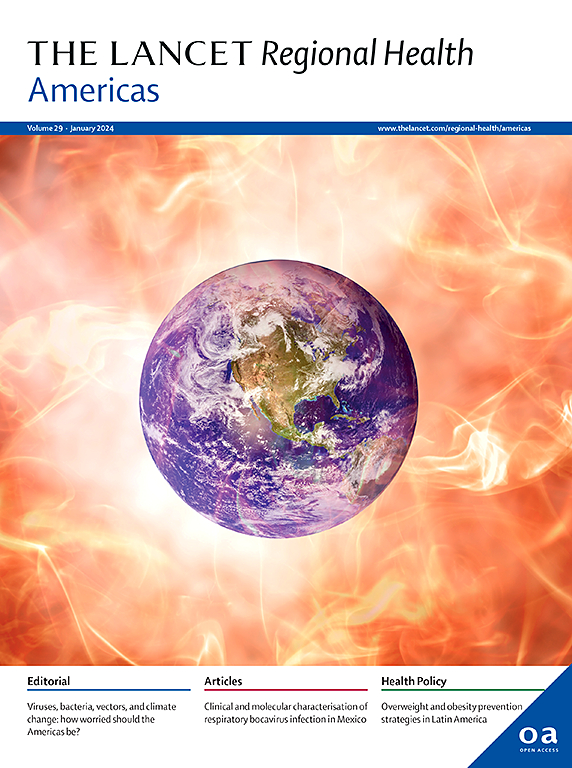Cultural adaptation of a digital therapeutic for insomnia for Spanish-speaking Hispanic adults in the United States: a qualitative study
IF 7
Q1 HEALTH CARE SCIENCES & SERVICES
引用次数: 0
Abstract
Background
Digital therapeutics represent an innovative and scalable means for addressing inequities in access to behavioural healthcare. However, the adaptation of digital health technologies for minoritised communities to promote equitable uptake remains elusive, and the procedures and outcomes are often not systematically detailed. Our aim was to describe the equity-centred, theory-informed process we undertook to culturally adapt, for Spanish-speaking Hispanic adults, the first Food and Drug Administration authorized, self-guided, prescription digital therapeutic for insomnia.
Methods
We used an integrated four-stage model of cultural adaptation to guide the process and a cultural adaptation taxonomy of common elements to report findings. A bilingual (Spanish/English) community advisory board provided critical input. In Stages 1–3, ten focus groups and 13 individual interviews were conducted to obtain feedback on cultural adaptations and digital components. In Stage 4, a pilot study was undertaken to assess usability of the adaptations. Qualitative data were analysed using thematic content analysis and coded by type of adaptation.
Findings
53 Hispanic adults with chronic insomnia were invited to participate in all stages; Mean age = 53.6 years (SD = 11.4), 64.2% women, 49% less than college, and 62.3% reported low technological confidence. Cultural adaptations were made in each taxonomy component (83 total); the adapted program had high usability (System Usability Scale = 95/100). Surface-level adaptations (34.9% of changes made based on observable characteristics), which included changes to the characters (storylines, images), activities, and content to reflect the within-Hispanic group heterogeneity. Deep-level adaptations (65.1% of changes made based on sociocultural factors) included the integration of sociocultural values (familismo) and environment/burdens (stressors, social determinants, immigrant status) into the intervention content, and more in-App guidance/instruction to facilitate navigation for low health and digital literacy.
Interpretation
We produced a digital therapeutic for insomnia for Hispanic adults across the digital literacy spectrum with high acceptability, usability, and potential to confer clinical benefits.
Funding
This project was supported by AHRQ HS024274 and a Provost Grant from Columbia University.
美国说西班牙语的西班牙裔成年人的失眠症数字治疗的文化适应:一项定性研究
数字疗法是解决行为保健服务不平等问题的一种创新和可扩展的手段。然而,为少数群体社区调整数字卫生技术以促进公平利用仍然难以捉摸,而且程序和结果往往没有系统地详细说明。我们的目的是描述我们为讲西班牙语的西班牙裔成年人进行文化适应的以公平为中心、理论为基础的过程,这是美国食品和药物管理局(Food and Drug Administration,简称fda)授权的首个自我指导的失眠处方数字疗法。方法采用文化适应四阶段综合模型来指导文化适应过程,并采用文化适应共同要素分类学来报告研究结果。一个双语(西班牙语/英语)社区咨询委员会提供了重要的投入。在第1-3阶段,进行了10个焦点小组和13个个人访谈,以获得关于文化适应和数字组件的反馈。在第4阶段,进行了一项试点研究,以评估改编的可用性。采用主题内容分析法对定性数据进行分析,并按改编类型进行编码。研究结果:53名患有慢性失眠症的西班牙裔成年人被邀请参加所有阶段的研究;平均年龄= 53.6岁(SD = 11.4), 64.2%为女性,49%低于大学学历,62.3%的人对技术缺乏信心。每个分类学组成部分都进行了文化适应(总共83个);改编后的程序具有高可用性(系统可用性量表= 95/100)。表层的改编(34.9%的变化是基于可观察到的特征),包括对人物(故事情节、图像)、活动和内容的改变,以反映西班牙裔群体内部的异质性。深层适应(基于社会文化因素的改变占65.1%)包括将社会文化价值观(familismo)和环境/负担(压力源、社会决定因素、移民身份)纳入干预内容,以及更多的应用内指导/指导,以促进低健康和数字素养的导航。我们为西班牙裔成年人提供了一种数字治疗失眠的方法,具有很高的可接受性、可用性和潜在的临床效益。本项目由AHRQ HS024274和哥伦比亚大学教务长资助。
本文章由计算机程序翻译,如有差异,请以英文原文为准。
求助全文
约1分钟内获得全文
求助全文
来源期刊

Lancet Regional Health-Americas
Multiple-
CiteScore
8.00
自引率
0.00%
发文量
0
期刊介绍:
The Lancet Regional Health – Americas, an open-access journal, contributes to The Lancet's global initiative by focusing on health-care quality and access in the Americas. It aims to advance clinical practice and health policy in the region, promoting better health outcomes. The journal publishes high-quality original research advocating change or shedding light on clinical practice and health policy. It welcomes submissions on various regional health topics, including infectious diseases, non-communicable diseases, child and adolescent health, maternal and reproductive health, emergency care, health policy, and health equity.
 求助内容:
求助内容: 应助结果提醒方式:
应助结果提醒方式:


